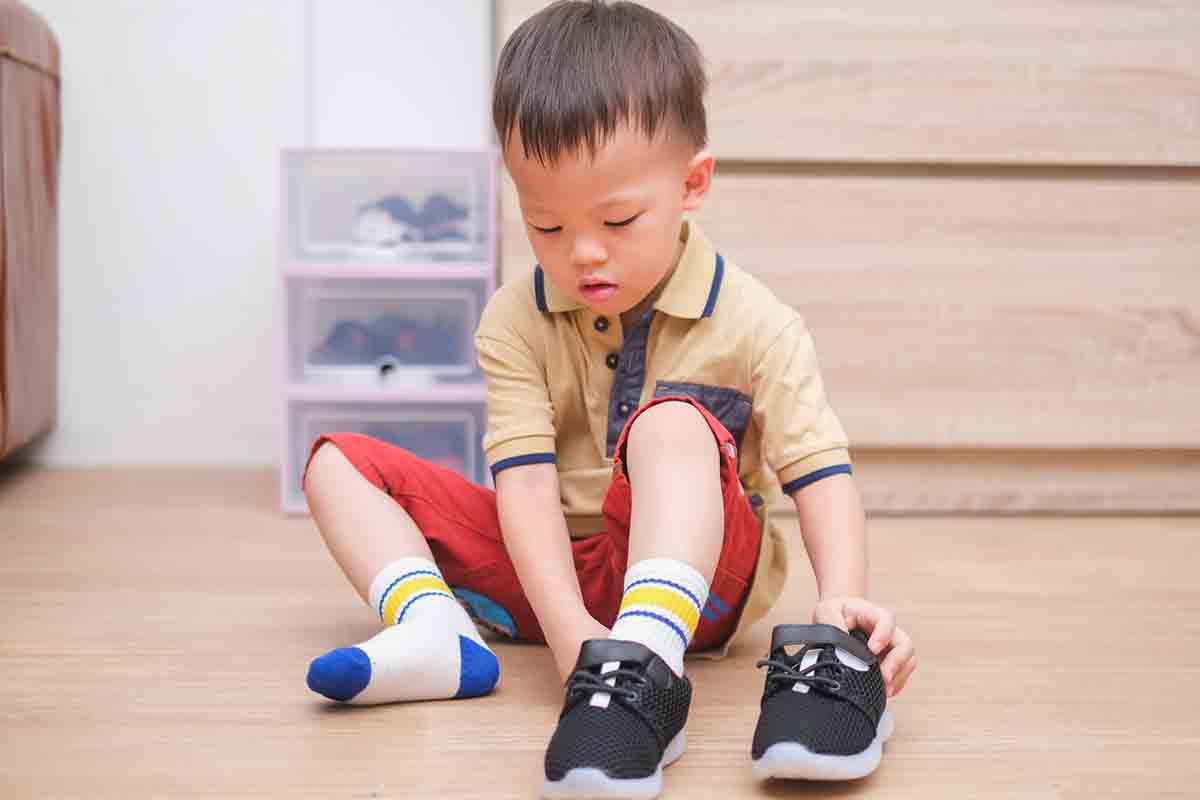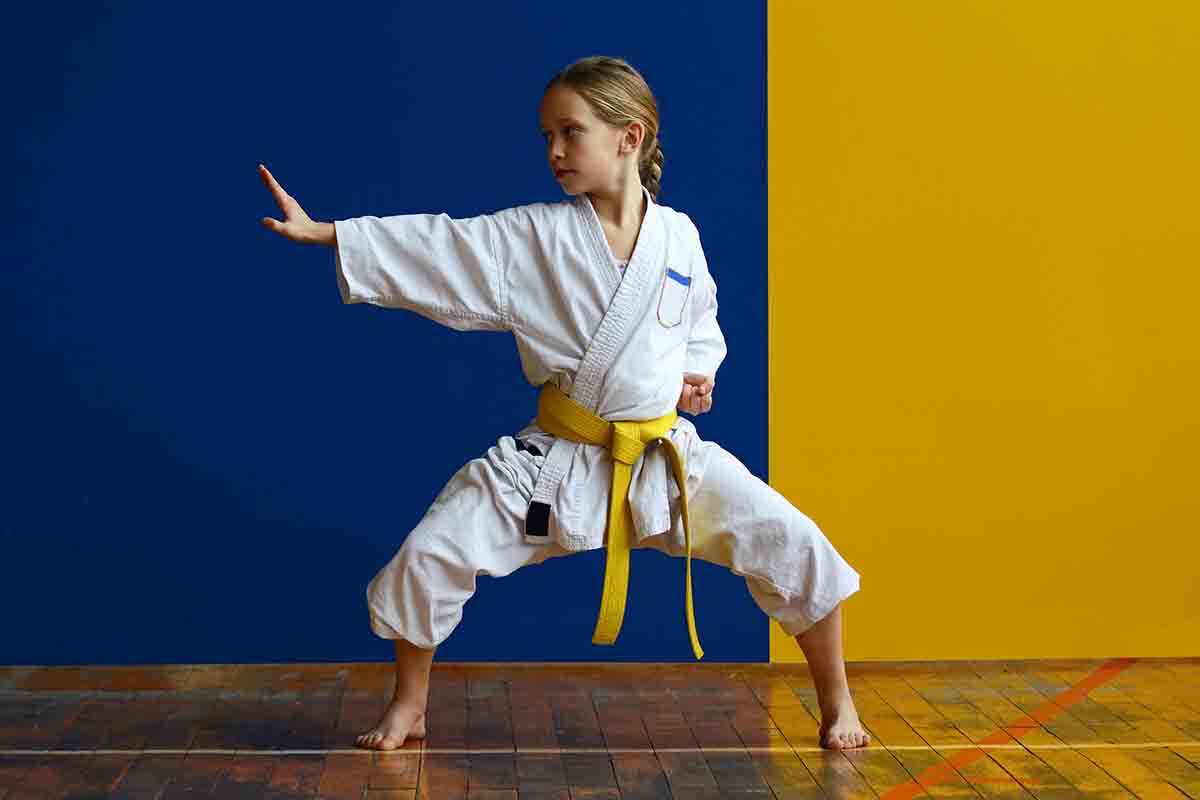Are you preparing your child to be independent? Teaching your child life skills is not only important for self-care and sufficiency — but it also allows him to feel empowered, works on socialization and reasoning, and helps develop healthy self-esteem. While you likely want to keep your kid little forever, helping prepare them to be responsible adults is part of our job as parents.
This list of life skills will help prepare your child for each stage of his life from preschool until the day he flies the coop. You can foster many of these skills at a young age, but adjust expectations as your child grows. The more they get to put skills into practice, the more independent they will become.
More: 8 Life Skills You Can Teach Your Kids At Home During Quarantine
1. Decision-Making Skills
You may not have realized that decision-making skills for young children are something that needs to be learned. Making independent decisions is an important skill to have so that as your child gets older, they can confidently make decisions without relying on someone else.
Allow younger children plenty of opportunities to make decisions like what to wear for the day, what to eat for a snack, etc. Natural consequences, such as choosing a pair of shorts on a winter day, or choosing a fruit snack and feeling hungry again, will help reinforce what are appropriate decisions to make. Kids like feeling in control and having choices offered to them, rather than just being told what to do.
By elementary school, kids will be deciding who to have as friends, what activities to participate in, how to spend their time, etc. Adolescents will be deciding how to spend their money, who to date, what they want to do in the future, etc. This will lead to confidence in young adults deciding about colleges, careers, life partners, etc.
2. Independence

Independence is another skill you may not have realized needs to be taught to kids. As parents, it’s easy to complete tasks for our kids because it’s faster, less messy, less stressful, etc. But if we want our kids to turn into strong and independent adults, then they need opportunities to develop this skill.
They should know how to complete tasks independently, finish their own school work, tidy their room on their own, and be responsible for their personal belongings. Provide opportunities for independence where your child can be successful and gain confidence in themselves. Typically by the ages of 10-13, your child is ready to stay home alone for small periods of time as they gain independence and you gain confidence that they can be safe on their own.
Your child will need to know how to support herself when she goes away to college or moves out. A great way to practice independence before that milestone is by having him schedule his own doctor and dentist appointments and other important health-related appointments. Before heading to college, make sure your teen can master these six life skills.
3. Basic Hygiene

Teaching kids hygiene skills will vary in level of supervision based on the age of your child, but eventually, you want them to be able to take care of personal hygiene without being told to do so. Basic suggestions for personal hygiene for young children are getting dressed, brushing teeth, washing face, bathing or showering, combing or brushing hair, and independently determining when clothes need to be washed. Pre-teens and teens will have additional personal hygiene skills that should be mastered as they enter puberty, such as learning when to start using deodorant.
4. Cleaning and Household Chores
Getting kids to do chores doesn’t have to be a struggle or a punishment. Having kids help out around the house, not only makes mom and dad’s lives easier, but can also be a fun and rewarding activity for kids. To start asking your kids to do chores without a fight, make sure you choose tasks that are appropriate for their age, and encourage them when they do a good job. Some parents may want to give their kids an allowance for completing chores, but money doesn’t have to be the only reward.
You can start with really basic chores that not only help you out at home but teach your child what is required to keep a tidy and presentable house. Create a checklist or a chore chart to set expectations based on how you need your child to contribute to the household. Then have your child earn stickers or an extra hour of playtime time based on what tasks they complete.
Some suggestions increasing by age are to help put toys away, put dirty clothes in the hamper, clear plates after a meal, help set the table, dust easy to reach places, feed a pet, wash the dishes, vacuum, make their own bed, sweep, and take out the trash.
As your child gets older, typically in teenage years, you can introduce using the washing machine, safely using household cleaning products, filling the gas tank, mowing the lawn, and helping with household projects. Teaching kids real-life skills will mean that you can confidently send them off knowing they can fend for themselves.
5. Preparing a Meal

Learning to cook for themselves will set children up for success in adulthood. Even if it’s something basic, being able to independently prepare a meal is a huge life skill. By ages 6 to 7 kids can start to help with cooking meals, and can learn to mix, stir and cut with a dull knife, make a basic meal, like a sandwich, and help put the groceries away. There are many kid-friendly recipes available to help young children learn basic cooking skills.
As your children become more confident in the kitchen, assist them in learning how to follow a recipe and prepare a simple meal for a family dinner. Teenagers can assist with choosing a meal, preparing a grocery list, and using the oven. Parents of teenagers will love being able to assign one night a month, or week, where kids are on kitchen duty.
6. Basic First Aid
Basic first aid, including knowing how to call 911, is a huge life skill that should be learned. Whether your child gets hurt when you’re not around, or they are witnesses to an emergency, having the skills and abilities to handle the situation until help arrives is essential. Before a child is allowed to stay home alone, make sure they know their address and your phone number. Talk about what is in a first aid kit and where they are located in the house. Lessons in basic fire safety to how to clean and bandage are all essential first aid skills kids should know.
Practice role-playing calling 911 and remaining calm until help arrives. Anything you can do to help give your child confidence in stressful situations will prepare them for future success. In order to be confident in allowing kids to look after younger siblings or neighbors, you need to be confident in their ability to handle basic first aid.
7. Problem-Solving and Learning to Adapt
Problem-solving and adaptation are skills that even adults can struggle with. Resilient kids will make resilient adults, and in an ever-changing world that can be essential. Practice problem solving and handling challenges appropriately with everyday situations. Kids may get frustrated at first, so teach them how to handle their emotions, and walk through a challenge step-by-step.
Have patience and stay positive so that you help kids learn to persevere through difficult times. One of the best ways to work on developing resilience and adaptation is by modeling appropriate behavior. When things don’t go the way you want them to, remember that your little ones are watching your every move. It can be hard to practice what we preach, but this is the perfect time to do it.
8. How to Appropriately Interact with People
We live in a day and age where being open-minded, accepting, and polite can go a long way. Teach your children how to respectfully address people, use good manners especially (please and thank you), have patience with others, to tip their service providers, stop and hold a door, offer help and assistance when they see someone struggling, and hold themselves accountable. The saying of “treat others how you would want to be treated” is the perfect motto when it comes to appropriately interacting with other kids and all people.
Teaching kids manners will help them impress their teachers and set them up for future success in the workforce. When you teach kids table manners, how to eat with their mouth closed, and share with others, grandma and grandpa will be so impressed with how polite your child is at the holiday dinner table!
9. Managing Money and Financial Literacy
You can begin financial awareness at an early age and expand upon these essential life skills as your child gets older. Learning the value of a dollar, spending versus savings, how to identify bills and coins, and how to earn money are all useful skills. Before your child heads off to college they should have a basic understanding of finances, and be able to manage his bank account, pay a bill and use a credit card. While many people and families find the topic of money taboo, the more open and honest you are with your child, the more responsible they will become.
10. Self-Defense Skills

A skill you don’t want your child to have to use, but self-defense is extremely important for youngsters to have a basic understanding of. Self-defense classes for kids have become more popular as parents worry about protecting their kids from being abducted or kidnapped. Basic self-defense tactics, including learning how to verbally de-escalate a situation, are also useful for kids to defend themselves against bullies and feel more secure.
Whether you worry about your child being approached by a stranger when walking home from school or a teenager with a job that keeps them out after dark, having self-defense skills will put your mind at ease and give your kid the confidence they need to stay safe.
11. Time Management Skills
Time management is a skill that is always going to be important, so getting started early is key. Kids these days are busy, from school, homework, athletics, extracurriculars, family time, and wanting to be with friends, they are pulled in a ton of different directions. And that doesn’t change as they get older, we as parents know how much we have to juggle. Work on creating reasonable routines, block schedules, priorities, and time limits. Once your child gets the hang of things, give them the freedom to manage their time while you intervene when necessary.
We've broken down what your children should be able to do. Now, how do you get them there? Check out our five tips to make your child self-sufficient.